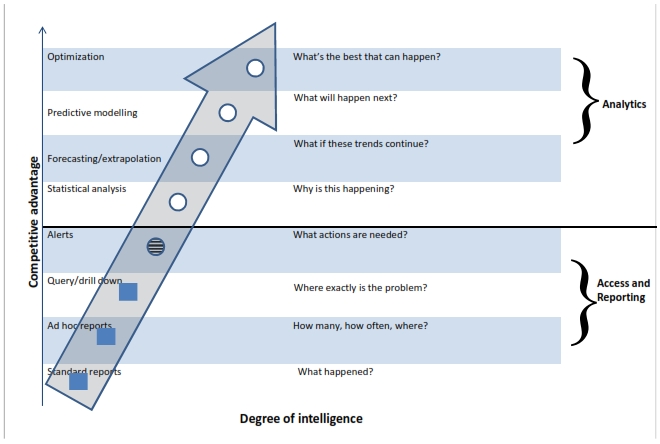A McKinsey Global Institute article "Urban world: Cities and the rise of the consuming class", reflects on the speed
and unprecedented scale of city expansion. This is placing an increasing demand for new environmentally friendly infrastructure for water and
energy, buildings, transportation and communication. Migration is motivated mostly by the search for a better life, and in additional to the infrastructure challenges previously outlined, this also places a strain on the cities to deliver citizen based services such as education, health, public safety, economic development and social programs.
Smarter city operations rely on the ability to capture data that can be used to anticipate and proactively resolve problems. Problem resolution can be achieved by coordinating processes and resources for more efficient operations. Take public safety as an example. IT systems can be deployed to predict, monitor and mitigate crisis situations. This can be achieved by automatically analyzing video streams for threats based on known criminal patterns. Similar capabilities can be applied to transportation for more effective traffic management, and for analyzing water use and consumption patterns, thereby enabling utilities to identify leakages and optimize repair jobs for improved service delivery.
 The figure to the left is from "Competing
on Analytics, Davenport and Harris, 2007".
The figure to the left is from "Competing
on Analytics, Davenport and Harris, 2007".
To be competitive, Smart Cities need to deploy Analytics capabilities that enable the delivery of a high quality of services that meets and exceeds citizen expectations today, and can accommodate future needs for real-time dynamic access to innovative new services.
Smarter city operations rely on the ability to capture data that can be used to anticipate and proactively resolve problems. Problem resolution can be achieved by coordinating processes and resources for more efficient operations. Take public safety as an example. IT systems can be deployed to predict, monitor and mitigate crisis situations. This can be achieved by automatically analyzing video streams for threats based on known criminal patterns. Similar capabilities can be applied to transportation for more effective traffic management, and for analyzing water use and consumption patterns, thereby enabling utilities to identify leakages and optimize repair jobs for improved service delivery.
 The figure to the left is from "Competing
on Analytics, Davenport and Harris, 2007".
The figure to the left is from "Competing
on Analytics, Davenport and Harris, 2007". To be competitive, Smart Cities need to deploy Analytics capabilities that enable the delivery of a high quality of services that meets and exceeds citizen expectations today, and can accommodate future needs for real-time dynamic access to innovative new services.
Additionally, these new services need to be resilient, secure, compliant with local requirements, and sufficiently agile to address new risks
posed by an ever more connected and collaborative world. And all of this needs to be achieved cost effectively. IBM's PureData System for Analytics is designed specifically for this use case.
Imagine a situation where city operations can be collaboratively managed via Executive, City Operations and Agency dashboards that include domain key performance indicators for standard operating procedures. Such a system could support centralized planning, execution and monitoring for more efficient operations.
IBM's Intelligent Operations Center delivered on a Cloud enabled PureSystems platform, enables cities to not only contain operational cost and
complexity, but achieve breakthrough productivity gains through rapid time to value via virtualization, optimization, energy
stewardship.

No comments:
Post a Comment